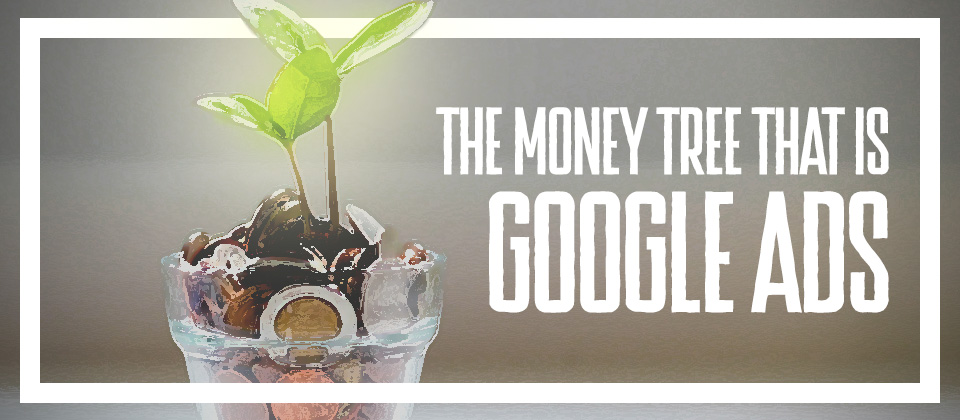
Small business owners seem to have a “hate-hate” relationship with Google Ads. Many have tried, and while a few have succeeded, many (if not most) have failed. You don’t know how the platform works, you’re afraid of wasting your money (if you haven’t already), and you’re strapped for time.
I once had a client come to us, visibly frustrated on our first call, saying, “My Google Ads have never worked; this is just a last-ditch effort”. He was selling essentially a water flosser for your teeth, also known as an “oral irrigator.”
You might see where I’m going here… when we audited the account, all we found was that despite him having keywords like “oral irrigation” and other related terms in his account, what he was really showing for once we dug into the search terms were all highly inappropriate. Let’s call them “not HR-friendly” terms. For months, he burned tens of thousands of dollars — almost his entire account’s spend was on these terms.
For the sake of experimentation, I let Google’s team manage Digital Position’s Google Ads account to see what happens. After all, Google should be the best at managing its own platform, right?
Wrong. Google did a terrible job (click the link to read the story on it), burning my money on irrelevant things for no return on my investment. The same thing applies today; Google does a terrible job of helping businesses figure out the platform.
Google Ads work when appropriately managed, but they can waste thousands quickly when mismanaged.
So, provided you’ve got the right partner (we hope you choose us 😉), how much does Google Ads for a small business tend to run? I’ll help guide you through the evaluation process and some “back of the napkin” math to help you determine what your business will cost. First, we need to determine if this is right for you.
Subscribe to get monthly updates

Get access to our industry trends newsletter delivered to your inbox so you never miss a beat.
We will never spam you.
What You Need to Know Before Spending
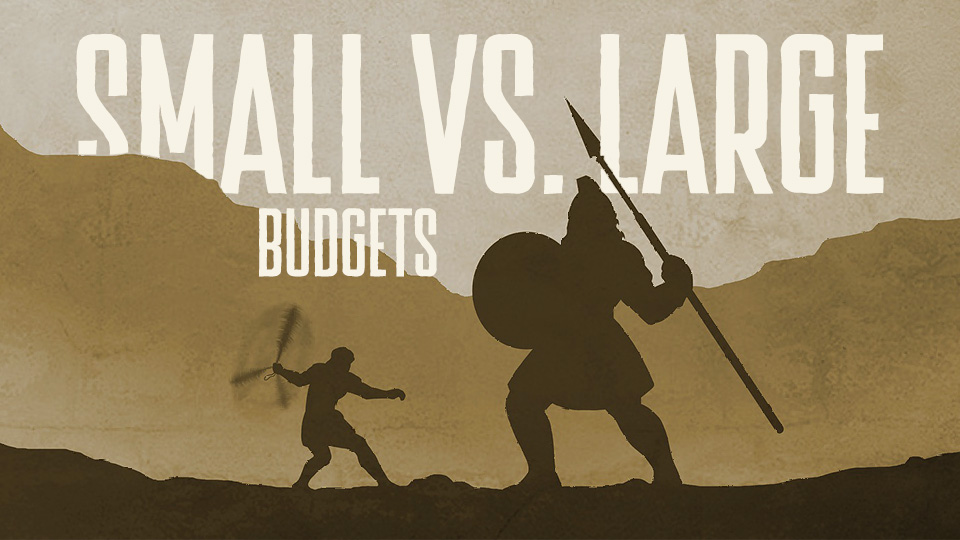
Small vs. Large Budgets
The first thing we need to know going in is the larger the budget, the more granular we can be. For example, let’s think through what it looks like to drive a national strategy on a budget of $5,000 per month. Divide that spend by 50 states ($100). Now divide that by desktop/tablet/phone ($33). Now divide that by women & men ($16.50). We can’t make proper, statistically significant decisions on $16.50 of spend. This doesn’t even include ZIP code, income levels, custom audiences, etc.
Make sense? This is why small businesses need to be really strategic.
Companies with much larger budgets will eat your lunch if you try to spread your budget too thin. This is why we recommend testing larger budgets for shorter periods (i.e., $4,000/month for 3 months is much better than $1,000/month for 12 months). Here’s why:
- You save 3 months to evaluate the channel’s viability for you.
- We’d get more statistically significant data in the door to make better decisions more quickly (see the “PPC is Reactionary” section below).
- The adjustment period is much shorter.
- More purchasing power allows us to get you in better converting, prime positions for your core keywords.
PPC is Reactionary & The Adjustment Period
PPC is test, learn, iterate, repeat. Nobody knows which queries at which times going to which pages will be your best money drivers. We can take educated guesses based on experience, but PPC takes time.
It was pretty apparent that when I bid on “best PPC agencies” in our Digital Position Google Ads account that if I let that run wild, I’d start bringing in traffic for terms like “best PPC agency jobs”. Thus, I have the foresight to negative out “jobs.”
But what about “best PPC agency primelis”? That’s some other agency somewhere that I would have never known about otherwise.
As you start spending, a good agency reacts quickly to what they’re seeing and cuts wasted spend. That’s why, when you ramp up a new account, you typically see this:
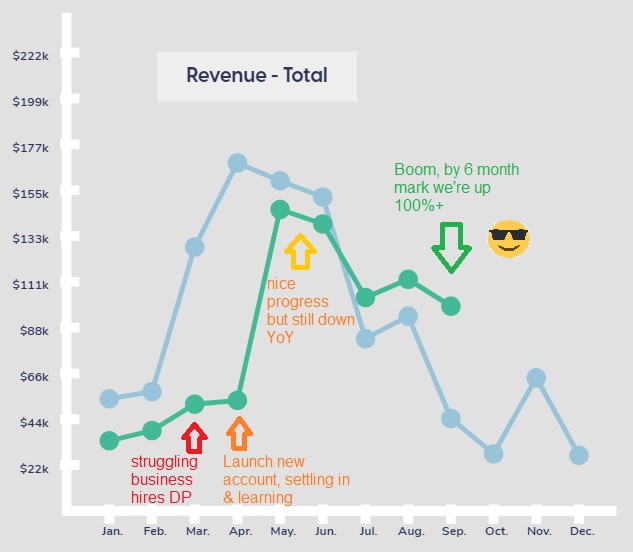
Notice how, in the first month, results were mediocre. Then, in month 2, results skyrocketed? That’s because any expert needs to spend money to determine what works best for you. Which audiences, keywords, geolocations, copy, etc. convert best? It takes time to nail down the perfect recipe. By 6 months in, we drove triple-digit growth for this client YoY.
Besides being reckless, this is why small businesses fail at PPC. They fail too quickly without giving time to adjust accounts. They see a poor first month and fire their PPC manager. This platform requires a “both feet in” patient mentality. But when you ARE patient, you can be rewarded heavily. Set a reasonable budget and work with your PPC manager to set realistic expectations in the first month, second month, and beyond. We recommend a 2-3 month testing period.
Is my business ready for this?
It’s so exciting to spend on PPC, see leads/sales coming in, and build a brand. Still, there are a lot of risks involved in this, and going into it without knowing the answers to these critical questions can sink your ship faster than you can bail out of water. Before you get started, ask yourself these questions:
- If this works and I double my business tomorrow, can I handle it? You’d be surprised by how many companies want to grow at all costs but don’t have the salespeople to handle the leads or the amount of inventory needed to cover all the orders coming in. This is the easiest way to damage your brand and lose money at the same time because customers don’t like waiting. They don’t like crappy service, which happens when you’re overwhelmed.
- Are my margins strong enough to sustain the budget I want to be at? This is the worst problem to run into. Imagine putting 20-30% of your revenue into your marketing budget, but your margins are 20%. Cash flow is only free for so long, and you better be able to make it up fast with the volume of sales off the first purchase or by finding new space in the margins to work with. Side note: if your margins are this bad, figure that out first before worrying about marketing. Marketing only amplifies your business; it can’t change the fundamentals.
- What is my break-even ROI? Note that I didn’t say ROAS – very intentional. What do you need as a return on investment, including fees, to break even on all advertising spend? You can try doing this for each individual channel (and I would still look at this). Still, it’s much easier to cut through the noise using a marketing efficiency ratio or MER model to see how advertising spend together affects business revenue. We’ll touch more on that in a later post!
- Do I even have the proper assets to grow with PPC? To make this simple, is your website good at closing sales or getting leads, and do you have the ability to get ad creative made quickly?
Figure these out, and you’re in an excellent position to grow alongside your budget!
Choosing the Right Keywords & Targeting
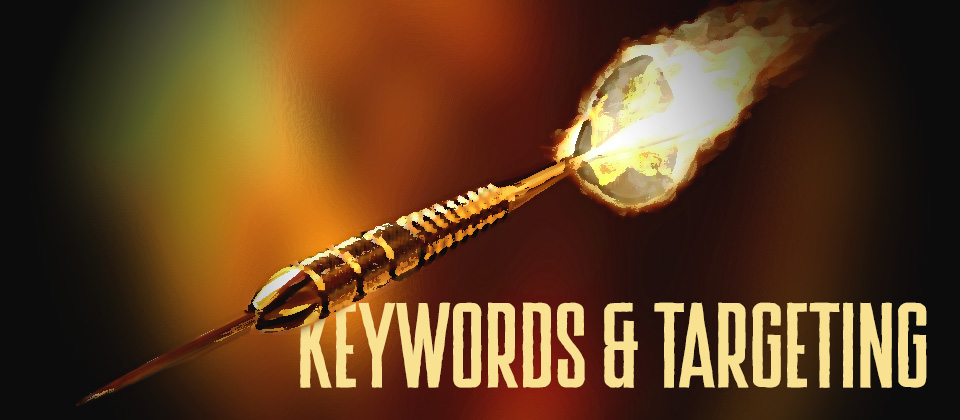
Are Your Keywords Viable For You Right Now?
The first thing I do when we get any lead is search what I consider to be their core terms. For example, below, I searched “home space heater”:
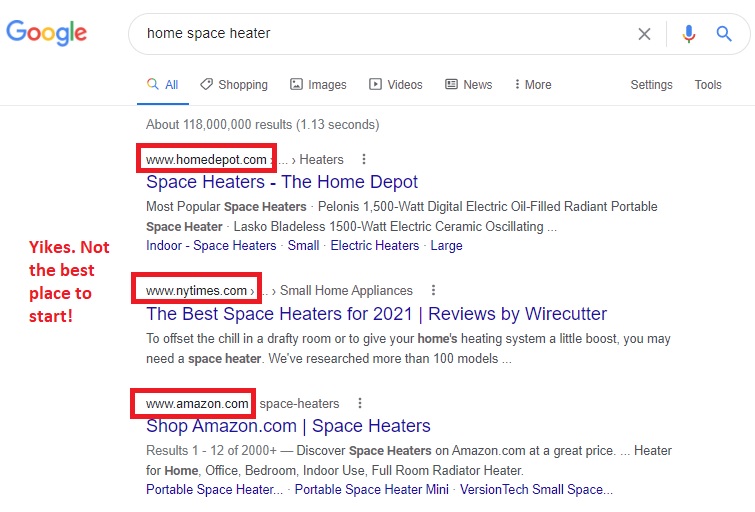
If you’re a small business selling home space heaters and going up against Home Depot, the NY Times, and Amazon — yikes. If this is the case, I start looking at longer tail keywords or keywords with fewer searches that maybe these big businesses have overlooked.
Think about your business critically:
Is there a demand for my product or service, or is this completely new? Paid Search is a ‘demand harvesting’ channel, meaning we’re capturing existing demand. Starting with a channel like Paid Social would be best if you need demand generation.
What are people searching for that are looking for my product or service? Put yourself in the mind of your customer. What would you search for in Google if you were looking for your product or service?
Is my product or service something big retailers already have coverage for, or do the searches fit a unique niche? For example, if you sell merino wool socks, you don’t want to start by bidding on “men’s socks” because you’ll be competing with everyone and their mother. But “high-end warm merino wool socks” might be a better place to start as a small business.
Do I have a high enough average order value to justify Google Ads spend? It’s tough to sell a product under $15-$20. If it costs $1.50 per click, you’ll need to convert 1/10 customers that visit your website immediately. That’s a tough ask when the average customer visits a website 2-3x before purchasing.
If AOV is an issue, test bundling products and offering slight deals for a more significant purchase.
Start Focused, Then Broaden Out
To fight in that same ring as your competitors, you must be much more strategic and consolidate budget wherever possible. For example, if you’re a high-end jump rope company and you can’t convert customers on the keyword “high-end jump ropes,” there’s a problem. You get the point — usually, a couple key terms define what you’re selling. Start there.
If that keyword or tight theme of keywords is still too much spend, pick your best performing geographic areas, times of the day, days of the week, genders, etc. Start as focused as possible and broaden out once you prove success. This allows you to verify the concept in Google Ads being a fit for you before you burn too much money.
But…What Should I Spend?
Ah, you’re convinced! You’re ready to spend on Google Ads and make an investment, but how much is that? Well, it varies. But the short answer is that most successful businesses, from local HVAC contractors to massive e-commerce brands, will spend between 10-30% of their gross revenue on marketing, of which not all are on Google Ads most likely.
Where you fit within that range depends on how much you feel comfortable investing and how much of your revenue you’re already dedicating to other marketing channels.
Typically, there are three types of marketing budgets: maintenance spend, moderate growth, and growth-at-all-costs! All three refer to your willingness to test and grow a channel or multiple channels at once, and most businesses will find themselves in all three of these at some point.
Maintenance Spend
While maintenance spend may sound negative, tons of businesses land here for periods, and it’s not necessarily bad, especially if it’s because you’re fixing or building processes to allow faster growth tracks.
But in this scenario, you’re spending 5-10% of your gross revenue on marketing. It’s basically to fund the channels that drive the most leads/sales, whether classified ads in your local paper, Facebook Ads, or partnerships with influencers.
As long as your top channels are funded well, you’re in a position to grow still, although much slower and with little to no opportunity to test new channels, or you’ll test them very slowly.
Moderate Growth
This is where it starts to get fun. In our experience, when companies switch from the maintenance spend mindset to a moderate growth mindset, they see results stack up quickly, especially if they have significant factors like ad creative, website CVR, and product-market fit down.
The moderate growth track is where companies start getting a bit more aggressive, spending between 15-25% of their gross revenue on marketing and the vast majority (15-20%) on the middle-to-bottom of the funnel, with a little bit of testing spend (5-10%) closer to the top of the funnel.
Whatever your best channel was during the maintenance spend period, now is the time to fully fund it and see if you can scale it up. Ideally, you can keep growing it profitably when you add that budget. Still, just like when you first started on that channel, there will be a learning period, and it will take time to scale up, in which you’re ready to invest that money but can’t do it well. What do you do?
Well, during that time, use that leftover budget to maximize and test your second-best channel. Or take it and try testing different channels until you find another potential channel. If you rinse and repeat this cycle, you can grow your revenue and budget effectively without changing the percentage you put in while finding new channels to reach your audience.
This is also the period when you start to figure out what your customer likes to see and what appeals to them best, allowing you to build ad copy that speaks to them, ad creative that captivates them, and landing pages that convert them.
Growth-At-All-Costs!
Wow, you really want to grow. Alright, well, in this scenario, you’re spending 25%+ of your gross revenue on marketing and fully invested in seeing how it can help you grow.
Just a heads up: This is the most dangerous yet exhilarating stage of marketing. You want aggressive growth, and you want it now. But if you go too aggressive, you could get ahead of yourself. The play here is to maximize your channels interchangeably and focus on which ones drive the lowest new customer acquisition cost (nCAC) and which drive the highest lifetime value (LTV).
Yet, at the same time, this is also where you start to figure out what your customers like to see and what appeals to them best, allowing you to build ad copy that speaks to them, ad creative that captivates them and landing pages that convert them. In other words, you not only need to invest fully into the channels that drive that low nCAC and high LTV, you need to make sure you’re pairing those with strong systems to allow those to grow and scale, and test even more channels.
I Get It. Tell Me How Much I Should Be Spending on Google Ads!

To determine this, we have to do a little math. For new clients, we always ask two questions:
- What is one new customer worth to you on average in revenue?
- How much profit do you make from that one new customer on average?
To use an example:
- One new customer is worth $400 (including 1 year of lifetime value)
- The business makes $100 profit on that customer (before marketing spend)
- This means that we would need to return a 4:1 ROAS (4 dollars of revenue for every 1 dollar spent) for you to break even on your marketing spend. To put it another way, you can spend up to $100 acquiring a customer (cost per acquisition, or CPA).
You should spend roughly 2x the CPA on each keyword ($200 in my example) you’re bidding on to determine if this is a pass or a fail.
For example, if you have 10 keywords you will focus efforts on, you would need a $2,000 budget to determine success or failure on those keywords.
A typical small local business budget is typically $2,500 – $7,500 per month. Once we’ve proven the concept, we look to aggressively scale your business so long as you can keep up with the demand.
The caveat here is the competition in the market. If a single click costs $10 because of high competition, that means we’re only going to get 10 clicks for every $100 of spend. That also means we need to convert 1 out of every 10 clicks or have a 10% conversion rate. With industry average conversion rates around 2-4%, your website better be damn good to make this strategy work.
If you’re looking for experts, we can help you do this math and determine if PPC is the right strategy for you (if it’s not, we’ll tell you). Go ahead and shoot us a proposal request and we’ll contact you immediately. Even if you’re unsure about hiring an agency, we can do an audit and provide some tips free of charge!
Danger: Don’t Spend if it’s a Last Ditch Effort
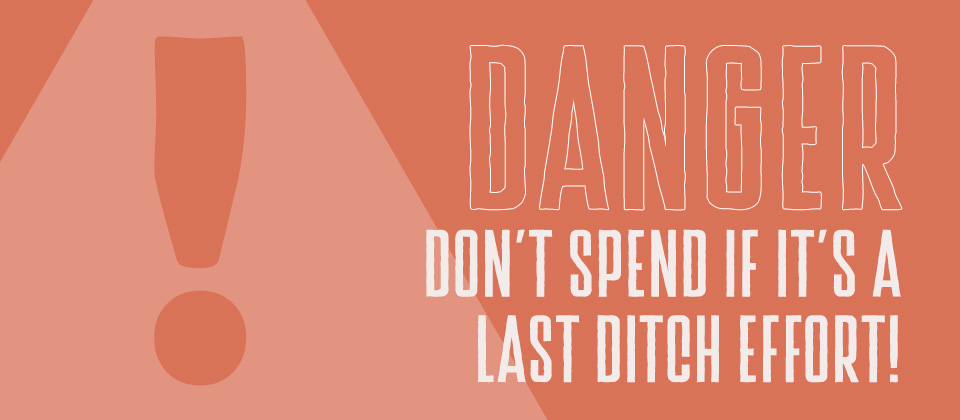
Good businesses do better on Google Ads. Bad businesses don’t. If your small business is turning to Google Ads to get itself back on the upswing of things, it might not be the best move. In that instance, hiring a Fractional CMO might be the more competent play to analyze your business on a more fundamental level and tell you what you need to do to prepare for a PPC initiative. The time to spend in Google Ads advertising is when your business is in good standing. You can make ends meet, your website is solid, you have strong support from customers, etc.
Overall, you’re in control of your budget. If you want to spend $5 a day instead of $1,000 a month, that’s your call. But keep in mind the benefits of spending more upfront to get more in return. You’re not spending money to spend it. You’re spending it to create growth.
If you need help deciding what you should spend on Google Ads, let us give you a quick evaluation and some small business marketing advice.


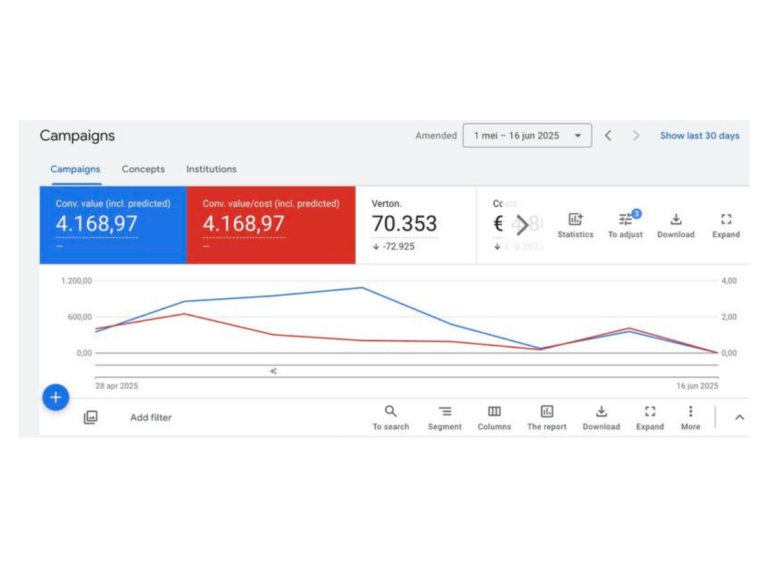
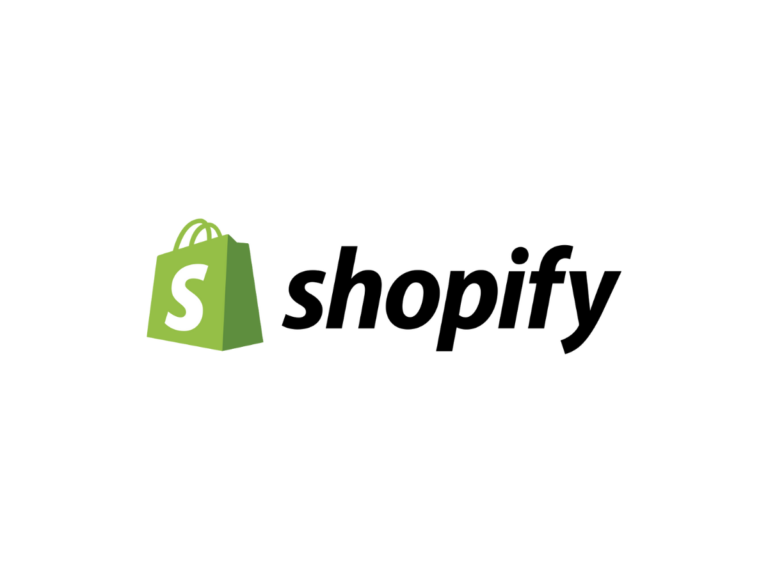
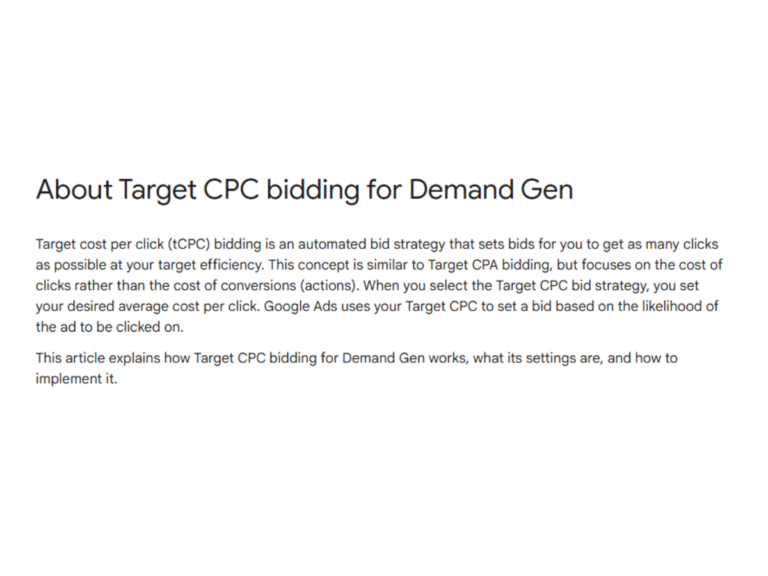
Hi Roger,
I just read through your helpful article as I’m beginning my journey to market my new VERY small business. I keep reading and reading about how to advertise and can’t determine where to begin and where it makes sense to invest my money. What services do you offer to small businesses? I saw that you mention you offer google adword budgeting advice – that would be much appreciated. Thanks! Allison
Hey Allison –
Congratulations on starting a small business! Online marketing can certainly be a punishing market for beginners – but if done correctly, can also be a very rewarding one! I’ll shoot you an e-mail to learn a bit about your business and to see if we’re a good fit. Either way, I’ll give you some tips to help get you started!
– Roger
This was an awesome article. Thanks so much for creating it.
These are excellent tips for business owners who are thinking of leveraging Google Ads. It is very important to do research about the market and plan the Google Ads budget wisely before launching the campaigns.
Thank you Roger!
Robust and well detailed. Convincing small business owners on spending a considerable amount to generate enough data is indeed a tough bargain.
Great article.
This site was… how do you say it? Relevant!!
Finally I’ve found something which helped me.
Thanks a lot!
Way cool! Some very valid points! I appreciate you writing this write-up and the rest of the website is also really good.
Hi Roger,
As a digital marketer at B3NET, a digital marketing and web design company, I’ve crafted numerous ad copies for Google PPC on behalf of our clients. I really like the helpful information in this post. The way of explaining budget and strategies matches how we work too. Your post emphasizes how important it is for businesses to carefully plan their budget and target the right audience to get the most out of their ads.
Looking forward to more insightful content from Digital Position! Keep up the great work.